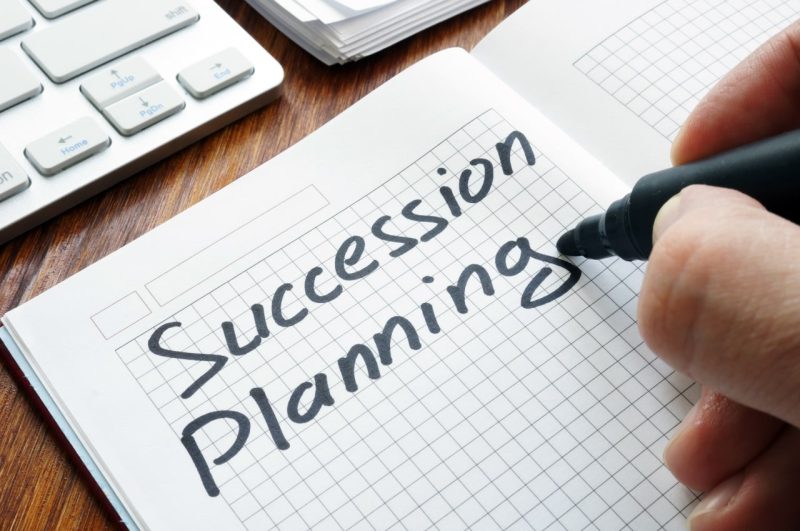Business Succession Planning & Related Documents
Business Succession Planning & Related Documents

What Is A Business Succession Plan?
A business succession plan is a critical component of any successful business. It provides for the transfer of ownership and control of the company to another person or entity. This kind of planning helps ensure that the business will continue to run smoothly and remain profitable even after a significant transition in leadership.
Creating a business succession plan involves making detailed arrangements for transferring ownership. It also outlines decisions on who will become responsible for running the company. The plan includes provisions on how legal obligations associated with the business are handled after the transition.

How Do You Create A Business Succession Plan?
When creating a business succession plan, assess what elements are essential to maintain in terms of critical roles, operations, customer relations, finances, and ownership. These elements will be different according to each company’s goals. Therefore, it is important that you tailor the succession plan accordingly.
Consider all options, such as selling or transferring your ownership share or bringing in partners or family members as part owners. You should also consider closing down certain parts of the business depending on its size and complexity. More about our services.
What Documents Should Be Included In Your Plan?
The documents that should be part of your business succession plan can vary depending on the complexity of your business and its individual needs.
Business Plan
A business plan outlines the company’s vision, mission statement, and core values and provides an overall financial strategy for the future. It details how the company intends to achieve its goals and objectives in the years ahead.
This document reassures potential successors as they enter into unfamiliar territory when taking over a company or transitioning from one role to another.
A business plan ensures that future leaders have access to all your strategies and plans for your business success.
Organizational Chart
An organizational chart provides structure and clarification of roles within the organization. It is vital so everyone knows whom to turn to when decisions need to be made or questions need to be answered.
An organizational chart should include each employee’s name, job title, and contact information. It should also illustrate how each department, such as finance, sales, and marketing, is organized within the company. It should outline their roles in managing every aspect of the company’s operations. This will provide a clear succession plan, so there is clarity about who takes over which position when you’re gone.
Financial Statements
Having accurate financial statements is critical to assess the current state of your finances and help estimate future projections. Your business succession plan should outline all the documents you have that reflect the current financial standing of your company. This includes income statements, balance sheets, and cash flow records, among other documents necessary for providing an accurate snapshot of your assets and liabilities. Having these documents readily available will help you make sound decisions. With financial statements, you can track how much money you are bringing in or taking out from the company at any time.
Bank Records
Having access to updated bank records will provide a clear understanding of the financial state of your business and set you up for success in the future. Knowing the balance of accounts, sources of income, expenses, and other transactions will be invaluable when making decisions about your business’s future.
Tax Returns
Tax returns ensure that you accurately account for all income and expenses associated with your business.
Having up-to-date tax returns available allows you to access crucial financial information to make informed decisions quickly.
Including tax returns could help you avoid specific penalties or liabilities about taxes owed by your company upon transfer of ownership.
Inventory Of Assets
An Inventory of Assets and Liabilities should contain a complete accounting of all your business’s tangible and intangible assets. It should also outline what investments have been made in the business since its start.
List of Debts & Loans
This list should include any loans you have taken out to finance the business. It should also include any existing debt or loan obligations. This information will help ensure that the transition process goes smoothly and that all debts are paid off promptly.
An up-to-date list of debts and loans is essential for creating an effective business succession plan. You need to clearly understand what needs to be paid off, when, who needs to pay it, and how much needs to be covered by each party involved. With this knowledge, your successors can make informed decisions about their financial investments during the transition period.
Employee Reviews
Employee reviews will provide valuable insight into employees’ work performance and capabilities. Employee reviews can be used as a basis for future staffing decisions. As such, it is essential that you include these reviews as part of your business succession documents.
Employee reviews allow you to assess an individual’s job performance and offer insight into their overall attitude and outlook toward their work. This information can provide important clues about how well-suited they may be for taking on increased responsibility in the future.
Marketing Plans
By including detailed marketing plans in your business succession planning, you can create a roadmap that guides the future of your organization and promotes growth and sustainability in the long term.
When making marketing plans for a business succession plan, be realistic about what you want to achieve over time. Consider factors such as customer acquisition targets, brand positioning goals, and product launch strategies. Consider how each of these components will work together within an overall timeline to integrate all elements properly.
Sales & Leasing Agreements
Sales and leasing agreements are legal contracts that detail the transfer of goods or services between businesses. These contracts provide clear stipulations regarding the terms of sale for both parties involved. This includes details about who will be liable for any potential financial obligations during the transition period. Including these in your succession plan can ensure agreement between both parties and avoid potential legal disputes.
Service Contracts
Service contracts documents are legally binding agreements between you and any third-party suppliers, clients, or other vendors who provide services to your business. These contracts help protect both parties from any potential disputes arising from the terms of the agreement.
Service contracts give you peace of mind knowing that all legal obligations remain intact when transitioning ownership or management roles. This can help avoid costly litigation and potential losses for you or the new owners as they take over operations.
Legal Documents Related To Ownership Arrangements
An effective business succession plan involves much more than just transferring ownership of a business. It requires legal documents that clearly outline the arrangements among the partners, shareholders, and other stakeholders involved in a business’s operation.
Partnership Agreement
A partnership agreement outlines how much each partner owns and how profits will be distributed. It also includes the terms and conditions required for a successful partnership between two or more people. A good partnership agreement should also discuss what happens if one partner leaves or dies. It also discusses any possible disputes that may arise within the group.
Operating Agreement
An operating agreement outlines the rules and procedures for operating the business. It includes who has the authority to make decisions, how profits and losses are shared among owners, and how disputes are resolved. It also defines each owner’s rights and obligations within the company.
An operating agreement should include information on how new members can be added or removed from ownership, which can help ensure continuity in ownership when a succession occurs. It should also explicitly address what happens if a partner wants to retire or dies, so there is no ambiguity in these matters down the road.
Shareholder Agreement
A shareholder agreement outlines the rights and responsibilities of each shareholder regarding their ownership stake and other aspects of running the company. The agreement should specify how much equity each shareholder holds, details on selling or transferring shares, and when shares are released from restriction. It also governs decisions, such as by majority vote or unanimous consent, so there is clarity among all parties involved.
In addition, it should outline what happens if there is a dispute between shareholders, such as through arbitration or mediation services. By including this in your business succession plan, you can provide certainty for all shareholders and protect yourself from any potential legal issues in the future.
Estate Planning Documents
An up-to-date estate plan helps protect your interests and those of any surviving dependents during the transfer process.
Wills
A will is a legally binding document that outlines what happens to your assets and possessions when you pass away. It also provides instructions on dividing your property and other financial matters after death.
Trusts
A trust allows you to transfer ownership of assets in a tax-efficient and cost-effective manner while safeguarding your legacy. Your Trust should be tailored to fit both your personal and commercial objectives. It should provide for reliable asset protection and control over resources and guide how assets should be distributed.
Power Of Attorney
Power of attorney is essential for ensuring that someone else makes decisions on your behalf if you become incapacitated. You should also consider appointing an agent to take over and manage your business if you suddenly pass away. Your agent would ensure all operational and financial tasks are taken care of.
Life Insurance Policies
Life insurance policies are essential parts of any succession plan as they can help cover costs associated with transferring ownership. Life insurance ensures that those who inherit the business have the necessary resources to continue operations.
Your successors could also use this money to pay off debts or liabilities associated with the transition period. Additionally, they can use these funds to invest in new marketing strategies or other initiatives related to growing their new venture.
Why Do You Need A Business Succession Plan?
When you think of running a successful business, having a business succession plan may not be the first thing that comes to mind. But the truth is, no matter how successful your business may be today, it won’t last forever without proper planning. A business succession plan is essential for ensuring that your hard work and investments continue to pay off, even after you decide to retire or move on from the company.
A business succession plan helps protect you and your assets in various ways. It clarifies who will take over leadership roles in key positions when the time comes. This can help ensure that any transitions are smooth and seamless, allowing for minimal disruption in operations when changes occur. In addition, it can guide valuing shares and other financial considerations during transfers of ownership or management responsibility.
Have questions about how to get started on your estate plan or estate needs?
Have questions about how to get started
on your estate plan or estate needs?
Contact the experienced estate planning professionals at The Estate Plan
by calling us at (305) 677-8489.
Contact the experienced estate planning professionals at The Estate Plan by calling us at
(305) 677-8489.

